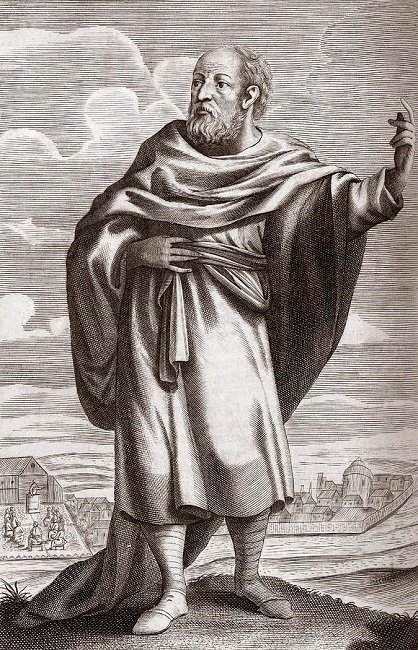Ancient philosophy. Some thoughts about skepticism
The prominent representatives of Middle Stoicism were Panetheus (185-110 BC) and Posidonius (135-51 BC), and Roman Stoicism - Seneca, Epictet and Mark Aurelius.In essence, Stoicism was a complex spiritual phenomenon involving various theoretical problems and their definitions and decisions, where the main direction of the theoretical effort was to differentiate the main areas of scientific knowledge and above all philosophy and the formation of the main sections of philosophy, which was generally defined as physics, logic and ethics, in which the problems relating to the socio-political sphere, the state and the law were considered in the ethics section.
The prominent representatives of Middle Stoicism were Panetheus (185-110 BC) and Posidonius (135-51 BC), and Roman Stoicism - Seneca, Epictet and Mark Aurelius.In essence, Stoicism was a complex spiritual phenomenon involving various theoretical problems and their definitions and decisions, where the main direction of the theoretical effort was to differentiate the main areas of scientific knowledge and above all philosophy and the formation of the main sections of philosophy, which was generally defined as physics, logic and ethics, in which the problems relating to the socio-political sphere, the state and the law were considered in the ethics section.
Philosophical concept uniting the gnostic and ethical issues that raised the question of the criteria of truth and questioned the principle possibility of knowing the reality and the truth or at all, or only within certain limits. Skepticism is characterized above all by the fact that it pays special attention to the issue of the mismatch between the excessive claims of philosophy and the unsatisfactory results in the interpretation of philosophical issues. Historically, the first distinct form or variation of skepticism is the pyrinism that was named after the ancient Greek thinker Piron (360-270 BC), which all ancient authors almost unanimously point to as the founder of skepticism.
He is the author of the sylly-poetic philosophical treatise, representing almost total denial of all preceding philosophical teachings and systems. It is this special feature that, in antiquity, skepticism was considered to be a complete denial of philosophy (philosophical knowledge) at all, and since nothing was offered in return, it was conceived as the first form of philosophical destructivism. In this connection, Diogenes Lazertski (IX, 74) views skepticism as having a single purpose, namely to refute other philosophical teachings and systems, without any interest in the question of offering any positive and constructive concepts.

To listen to the audio version of this article click on the play image.

Brought to you by @tts. If you find it useful please consider upvoting this reply.
You got a 24.49% upvote from @brupvoter courtesy of @godflesh!